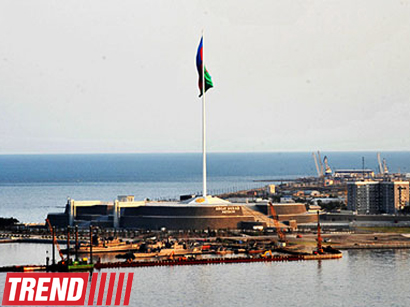Baku, Azerbaijan, Dec.12
By Ilkin Izzet - Trend:
The Armenian family which illegally crossed to the territory of Azerbaijan on Jan.10, 2010, was handed over to the Armenian side by Azerbaijan, the State Commission on Prisoners of War, Hostages and Missing People of Azerbaijan told Trend on Dec.12.
The family was handed over to the Armenian side on the border in the direction of the village of Bala Jafarli of Azerbaijan's Gazakh district on Dec.12, 2014 on the basis of their appeal to voluntarily return to Armenia.
The process, carried out by the State Commission on Prisoners of War, Hostages and Missing People of Azerbaijan and the country's Defense Ministry with the mediation of the International Committee of the Red Cross (ICRC), passed without any incidents.
It should be noted that Yegishe Gevorgyan (born 1958) and his wife Ruzanna Mardanyan (born 1982) with three children - Alfred (born 2002), Gayane (born 2003) and Petros (born 2006) - voluntarily crossed the Armenian-Azerbaijani border by car in order to move to a third country in 2010.
Risking his own life and the lives of his family members, Gevorgyan crossed the Armenian-Azerbaijani border by ERAZ car in the direction of Nakhchivan Autonomous Republic under the intense fire by Armenian armed forces. Gevorgyan and his wife refused to return to Armenia and send a written appeal to the government of Azerbaijan asking to send them to a third country. The householder said that they had to leave Armenia due to unbearable living conditions.
Under the procedure, the appeal was submitted to the UNHCR Representation in Azerbaijan which started the work on determining the country where they could be sent as refugees.
Although almost five years passed, no country agreed to accept them and the family decided to return to Armenia.
During the period of stay in Azerbaijan, the Armenian family was under the tutelage of the ICRC. The ICRC and the Office of the United Nations High Commissioner for Refugees constantly confirmed that the family's living conditions in Azerbaijan meet all international humanitarian legal norms. The members of the Armenian family were constantly passing medical examination and no health problems were revealed.
Nevertheless, Gevorgyan in many cases behaved emotionally, put forward various demands, made 'complaints' during the visits of representatives of international organizations and repeatedly blackmailed to commit a suicide, hunger strike and voiced insults. By behaving this way, he attempted to put pressure on the corresponding international structures and highlight the importance of sending him and his family to a third country.
During the period of this family's stay in Azerbaijan, Armenia has never raised the issue about their return and didn't inquire after the fate of the young children.
The conflict between the two South Caucasus countries began in 1988 when Armenia made territorial claims against Azerbaijan. As a result of the ensuing war, in 1992 Armenian armed forces occupied 20 percent of Azerbaijan, including the Nagorno-Karabakh region and seven surrounding districts.
The two countries signed a ceasefire agreement in 1994. The co-chairs of the OSCE Minsk Group, Russia, France and the US are currently holding peace negotiations.
Armenia has not yet implemented the UN Security Council's four resolutions on the liberation of the Nagorno-Karabakh and the surrounding regions.






